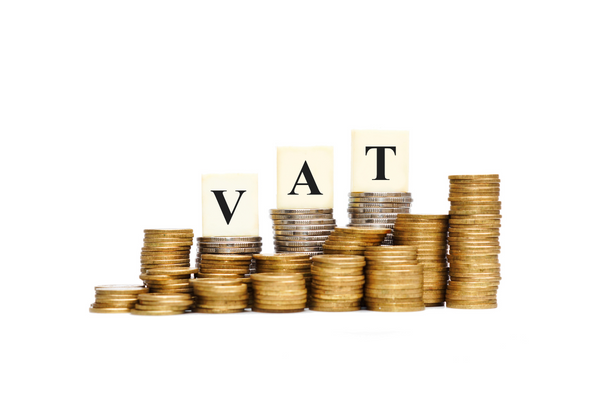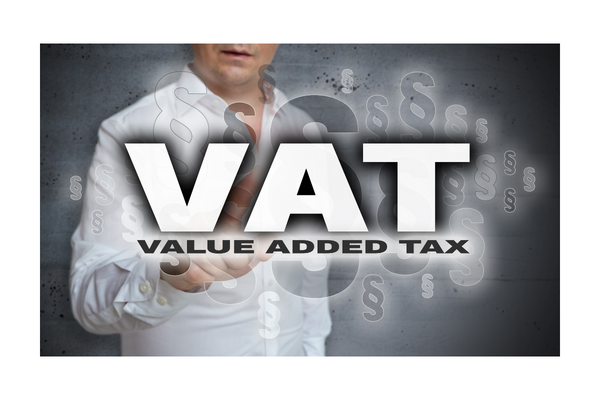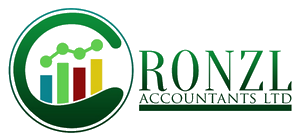Value Added Tax
Value Added Tax (VAT) in the UK is a tax that is paid by consumers as soon as they buy an item that is a taxable supply.
The tax is not meant to be suffered by a taxable business rather it’s the final consumer that suffers the burden of VAT.
It’s like a vicious circle. Ronzl Northampton accountants usually say it is like a businessman working as a tax collector for HMRC.
The incentive for doing this is they get to reclaim all the VAT they have paid as well.

Is it everyone that pays VAT in the UK?
This is a very important question and the answer is NO. There are conditions that have to be met for VAT to be charged:
- The supply must be a supply of goods and services.
- The supply must be made by a taxable person i.e. V.A.T only be charged by a person who is or should be registered for VAT.
- The supply must have been made in the United Kingdom. This refers to supplies that are made in England, Northern Ireland, Scotland and Wales.
- This supply of goods and services must be made in the course or furtherance of business. This simply implies that whenever VAT is charged either or both of the parties involved must be involved in the business.
- Whenever VAT is charged it must be for a taxable supply. This simply implies that there are different types of supplies and it’s not all supplies that would be taxable or at the full rate.
Different types of VAT taxable supplies
Supplies of goods and services in the UK are divided into 3 groups:
- Taxable supplies.
- Exempt supplies.
- Supplies that are outside the scope of VAT.

Taxable supplies:
There are 3 types of taxable supplies and they all have different rates that are applied.
- Standard rated which is charged at 20%: the supplies that fall into this group are items that are either zero-rated or taxable at a reduced rate.
- Zero-rated: the suppliers of these goods would charge 0% however they can still reclaim the VAT they pay.
- Examples of zero-rated supplies are grouped as follows:
“ Food, sewerage and water, books (including talking books for blind and handicap), construction of the building, protected buildings, international services, transport, caravan and houseboat, gold, bank notes, drugs, medicines and aids for disabled, import and exports, tax-free shops, charities, clothing and footwear.”
It should, however, be noted that some of these groups have exceptions and conditions attached to them.
- Reduced rated supply: the supply that falls on this group is charged at a rate lower than 20% and as defined by the legislation.

VAT Exempt Supplies :
These supplies of goods and services are exempted from VAT and they are also grouped in the legislation and conditions and exceptions should be considered before finally categorising them as an exempt supply. They are as follows:
“Land, Insurance Postal services, Betting, Gaming and Lotteries, Finance, Education, health and welfare, Burial and Cremation, Trade Union and Professional bodies, Sports, Sport Completion and Physical Education, Work of art, Fundraising events or charity, Cultural service, Supplies of good where input tax cannot be deducted, Investment Gold, Supplies of services by a group involving cost sharing.”
Illustration
When Jack buys chocolate from Tesconi, a corner shop, the unit price for the chocolate is £1.00, however, the corner shop added an extra amount of 20p as VAT.
As Jack is the final consumer here he would be the one suffering the final burden.
Tesconi will then have to give HMRC the 20p received from Jack. Tesconi also would be able to claim back they suffered from their other expenses like Petrol, rent etc.
Other Supplies Outside of the Scope.
There are certain supplies that a business can never charge VAT on because they are not within the scope of VAT:
- When business sell their business as a Transfer of Going concerned
- When transactions are done within a group (intragroup transactions)
- Tips and gratuities
- Salaries and wages paid to staff working in a business, this does not include the contractors
- Supplies of goods and services that take place outside of the UK.
